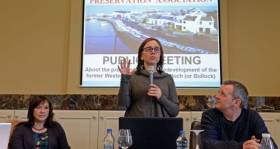Displaying items by tag: Refused Planning
Controversial Bulloch Harbour Development Refused Planning Permission
#BullochHarbour - A controversial development proposed at Bulloch Harbour, an inlet close to Dalkey in the south Dublin has been refused planning permission.
As The Irish Times writes, Bartra Capital Ltd, founded by developer Richard Barrett, had filed plans last December for seven ground-floor commercial units and six three-storey terraced dwellings at the end of the harbour, as well as a further three houses to the rear of the development.
The plan prompted an immediate reaction from the local community, with a number of public meetings held on the proposals.
Almost 300 formal objections to the development were filed with Dún Laoghaire-Rathdown County Council.
Planners have now decided to deny permission for the project, saying in a statement that they considered the amount of site area which is reserved for residential use to be excessive.
“Together with the design and layout of the development and the inadequate provision for marine-related uses, [it] seriously compromises the achievement of a quality mixed-use and integrated development, with adequate and appropriate provision for marine and harbour-related activities,” the planners said.
‘Utterly inappropriate’
Local People Before Profit councillor Melisa Halpin welcomed the decision, saying the plans were “utterly inappropriate” for the harbour.
Ms Halpin said it was now time to push for a strategic plan for the harbour which would safeguard it against future, similar proposals.





























































